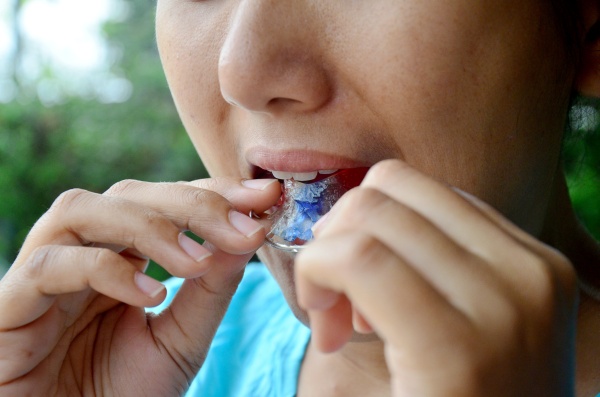Let a Pediatric Dentist Teach Your Child About Oral Health

Bring your child to our pediatric dentist office so we can teach them how to brush and floss properly. Establishing a good oral hygiene routine is absolutely critical for the health of a child. Most parents realize this, but it is not easy to teach a child what steps to follow and how to do them correctly. As a dentist, we have an easier time doing this because it is what we do, all day, every day. We clean teeth and improve the oral health of our patients. Children realize this, and so they are more likely to pay attention to what we have to say, and be willing to listen. Parents who are frustrated by their child's lack of interest in oral healthcare should simply give us a call, schedule an appointment and let us provide assistance.
The 2/2 rule
One of the easiest things we can tell a child is to follow this simple rule. Brush teeth twice a day, every day, for at least two minutes at a time. If children follow this one basic step, there will be less of a chance that they will suffer from tooth decay or gum disease.
Use the right tools
If a child uses the right tools as part of their oral hygiene routine, it will influence how effective they are at cleaning and strengthening their teeth. We recommend using the following:
- A soft electronic or battery-operated toothbrush
- Fluoride toothpaste
- Floss picks that are easy for a child to hold
- Antibacterial mouthwash
Using these tools and replacing toothbrushes every three months will help a child see the best results from their oral hygiene routine. We can show a child how to use all of them.
Using tools correctly
When teaching children how to brush and floss, a pediatric dentist will demonstrate, instead of just talking about them. This helps a child to realize what they need to do at home. We typically recommend doing the following:
- When flossing, floss all the way along the tooth, not stopping at the gum line
- Move the brush in a circular fashion
- Start the toothbrush at the gum line, working toward the center of the mouth
- Break the mouth into quadrants, brushing each one for at least 30 seconds
- Brush longer if teeth do not feel clean when running the tongue along them
- Rinse thoroughly when done
These simple steps are easy to follow but can make a big difference in how clean a child's teeth get and how healthy their mouth is.
Drink water throughout the day
Our big final tip is for children to carry a water bottle and drink water throughout the day. This is especially important after snacking or eating if they cannot brush their teeth. It helps remove food particles from the teeth and gums, reducing the likelihood of them developing tooth decay.
Visit a pediatric dentist for more help with your child
We are here to provide assistance for whatever your child needs to remain in good oral health. To learn more, call and schedule an appointment today.
Call (949) 625-1570 today to reach Meshia Azad DDS.
Related Posts
Your child needs pediatric dentistry services. Caring for their mouth, teeth and gums is critical at a young age. You work hard to keep cavities, plaque, tartar and other issues at bay. If you place a significant emphasis on your health, you should do the same for your young family members. If your child needs…
Looking for more information on children’s dental care? Good idea. This information is especially beneficial for new parents, as they need to fully understand the dental care requirements recommended by dental professionals. There are dental guidelines in place that listWanting more insight on children’s dental care? When children are sitting in a dental chair, there…
From the first appointment, a Pediatric Dentist keeps in mind a pacifier or thumb sucking habit and watches the way your child's teeth and jaw develop. According to the American Academy of Pediatric Dentistry, sucking generally only becomes a problem if it continues after the age of 3. It is normal for children to suck on…
According to the American Academy of Pediatric Dentists (AAPD), parents should book dental appointments with a pediatric dentist for their children at least twice yearly, starting about six months, following the eruption of the first tooth. These two yearly dental appointments enable the pediatric dentist to watch the teeth development closely, examine any change in the…

